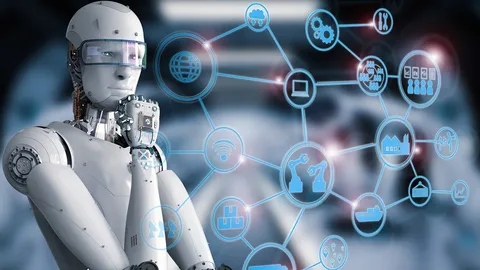Dr. Natalia Stakhanova, a renowned cybersecurity expert and associate professor of computer science at the USask College of Arts and Science, sheds light on the potential of AI in security and privacy measures.
Dr. Stakhanova, who is the holder of four patents in the field of computer security, emphasizes that while AI is not a new concept, its integration into everyday life has become more prevalent and pervasive. For instance, banks often employ AI-powered phone systems to enhance customer support by offering efficient navigation and relevant answers. Such applications serve as an example of the simple everyday uses of AI.
However, AI has also attracted scrutiny in the cybersecurity realm due to concerns related to its potential contribution to cybercrime. As digital platforms continue to amass vast amounts of personal and financial data, the need for safeguarding information against exploitation and breaches has become paramount. Dr. Stakhanova highlights that AI can be viewed from two perspectives – as an enabler of more efficient data exploitation by malicious actors or as a tool for defense against cyber threats.
Many organizations store sensitive data on secure computer systems, but these systems are not impervious to sophisticated cyber attacks. Dr. Stakhanova argues that if AI can be utilized to develop methods to infiltrate secure systems, it can also be harnessed to test and bolster the security measures of individuals and companies. Consequently, AI has the potential to become a vital asset for strengthening cyber defenses, potentially reducing reliance on human intervention in the future.
When contemplating the effectiveness of AI in defense systems, Dr. Stakhanova reiterates the importance of acknowledging both the negatives and positives. Rather than solely focusing on the potential threats of AI-driven cybercrimes, she emphasizes its crucial role in continuously testing security measures. The ability to simulate attacks on a large scale and identify potential threats that may not yet be feasible represents a significant advantage in enhancing cybersecurity.
Although AI possesses impressive capabilities such as information retrieval, generating coherent communications, and analyzing data at unmatched speeds, Dr. Stakhanova acknowledges its limitations. Complex reasoning, a cognitive ability that humans excel at, is still beyond the scope of AI. The chain of thought that humans can effortlessly deploy, encompassing personal experiences, knowledge, and influences, remains a challenge for AI to replicate effectively.
The introduction of AI capabilities has spurred hesitancy in various domains, such as workplaces and schools, primarily due to concerns about job displacement and changes in workflows. However, Dr. Stakhanova believes that the rise of AI should be embraced, albeit with caution. While acknowledging the lack of regulatory frameworks, she suggests prioritizing the development of safety guidelines and recommendations to guide the ethical and responsible use of AI.
Furthermore, Dr. Stakhanova emphasizes the importance of educating youth on cybersecurity and online safety, particularly given the pervasive digital landscape in which they are growing up. By fostering awareness of cybersecurity risks and promoting safe online practices, future generations can contribute to a more secure digital environment.
In conclusion, AI undoubtedly holds immense potential in both the advancement and protection of our digital infrastructure. While it is crucial to comprehend its limitations and potential risks, the benefits of AI adoption should not be overlooked. Establishing regulatory frameworks and fostering an ethical approach to AI implementation will be instrumental in harnessing its capabilities while mitigating potential harm.
Note:
1. Source: Coherent Market Insights, Public sources, Desk research
2. We have leveraged AI tools to mine information and compile it



